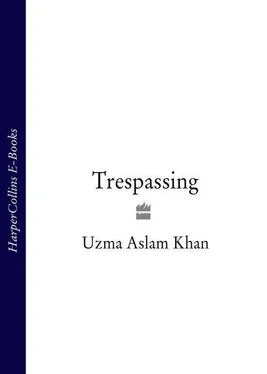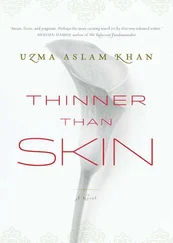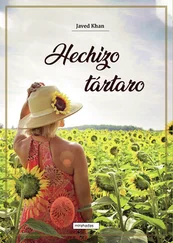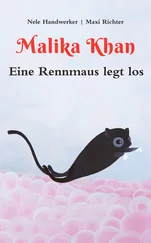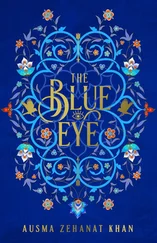She reached up to stroke the point where his side parting met the back of his head, but the first raindrop of the season touched him first. It was loud and fat, and Daanish shook his hair and laughed. The rain quickened, drumming in a steady stream, while the sand whipped around and layered them. When she kissed the back of his neck, she tasted rain and grit and bit sinew and watched the prints her teeth left behind in the moist sand.
3
The Blending of the Ways
Normally, the monsoons were Dia’s favorite time of year.
Before daytime storms turned to week-long affairs, before gutters spilled, electricity was cut off, telephone lines burned, cars stalled, and grief afflicted thousands of flood victims, there were crepuscular days lulled by pattering on rooftops, rich smells, bright hues, and a steady, puissant breeze. Best was when the rainfall softened to cool drizzle, driving the tiny, furtive creatures she loved out into the open. The torpid snail emerged, leaning far out of its shell, creeping up walls and staircases like an errant knight. Earthworms slithered, dragging fallen leaves back down to their burrows. Ants swarmed, mating in the moist air. The leggy cranefly sipped moisture from grass.
She’d step cautiously along her brilliant green lawn, absorbing it all: a residual raindrop on a single leaf, causing it to shudder like a hiccup; hoverflies swilling mist; bulbuls diving for dancing gnats. She’d feel things so poignantly it was as if the flaccid sky had sunk into her bones, teaching her to see life up close, closer than anyone else. When a thin, flaxen light cut through the clouds — the clouds that were in her — she could hear earthworms die, and aphids sweat honeydew. When the sun descended and the air turned tawny, bulbuls sang more vibrantly, as if the rain had cleansed their vocal cords. At nightfall, she’d slip into the deliciously chilled, damp sheets that smelled of rain, and think, as she so often did at the farm: God is here; God is detail.
But this year the before period never came. The first storm continued for three days, and Dia felt a reality devoid of meaning press against her. On the drive back from their last meeting at the cove, Daanish’s car had stalled several times and she’d had to flag a taxi. Slick with mud, she’d passed Inam Gul on her way up to her room. She hadn’t wanted to get into a Sumbulesque discussion, so insisted she’d been at Kings and Queens. He was silent, tentative — not the Inam Gul she knew.
Since then, Daanish had called to say his car had still not been repaired. None of the mechanics were picking up their phones and he couldn’t go out looking since all the roads around him were knee-high in putrid waste. They wouldn’t be able to meet again for days. He was leaving in less than three weeks.
Her own neighborhood was cloaked in a darkness only earthworms would celebrate: for the last twenty hours they’d had no electricity, and in the refrigerator, food was beginning to rot. Mosquitoes invaded, as did the drone of generators.
On the fourth day, she squatted on the muddy doorstep, looking helplessly around her. The rain fell like a sheet of armor. It had a point to make, and would continue making it as obstinately as it damn well pleased.
The creatures that thrived on its fury taunted her, for they were free to court each other, while she and Daanish alone were not. A bright emerald frog hopped by her damp feet, croaking with gusto. Its throat ballooned to three times the size of its head and it blinked with lust. Slugs wrapped frilly feet around each other in wild abandon. She thought, Daanish would love to see this. Perhaps he did, at that very moment, in his own house. So why weren’t they together?
She began to see her world from his eyes, as if the rain had pulled her into the sea, and all the land dwellers had changed to their earlier, watery state. Insects like the leather jacket suddenly looked more like a cuttlefish, tentacles rippling as it slid along the wet ground. A spider hanging nearby carried an egg cocoon in her arms, reminding Dia of the argonaut Daanish had spoken of. Sopping ivy was seaweed. How she longed to hear him speak of such things in his lilting voice! But the rain beat down, building a wall inside her garden wall.
In that other place of his, which he said was just the same, did weather get in the way of love? She was beginning to think like that. In her mind, phrases were increasingly punctuated with in this country, or, in other countries. She’d never done that before. This had always been the only place she knew, loved, and wanted to be immersed in. It was Nini who’d dreamed of that other. Not her.
But she was getting entangled in aspects of that faraway world Daanish reluctantly shared with her. To get to his classes, he had to cross a sloping wooden bridge above a stream that in winter rang with icicles and in spring, teemed with carp. She’d never known ice. Rain, yes, but not a bank of singing frost. In fine weather, he said students walked the campus barefooted, and discussed assignments with professors under the shade of towering oaks. It all sounded wonderfully intimate and fabulous to her. And though he claimed otherwise, she could read his eyes well enough to know there was magic there for him too. And so she was beginning to understand what he meant when he said he was divided.
The thought of him leaving filled her with more anguish than she’d ever known. It had come to this: in less than a month she’d allowed him to tear most of her old skin off. When they weren’t together, she wanted it all back. And there was no one — no Nini any more — to cry to.
Two days ago, she finally phoned to tell him this. She was amazed at his response: ‘Going away will be easier for me because we’ll always be together, won’t we? I’ll be back in the winter and you’ll be here, waiting, and nothing will change. Now my life has direction, Dia.’
Out on the doorstep, under cover of the seaweed-crawling roof, Dia shivered. The wind picked up. Rain fell at a slant and her clothes were soaked through. She’d been in drenched clothes a lot lately. Lightning ripped the sky, and the rain crashing on the ground sounded like a herd of camels, racing toward her.
You zip me up, he’d said.
She held herself tight, cold and miserable. The opposite was happening to her.
Days later, it still rained. The electricity returned then shut off again. Riffat, exhausted from nights of blistering sleeplessness and days of surviving drivers whose aggression feasted on bad weather, stayed home. With no power at his office, her brother, the computer engineer, did too. The household was inebriated with stale air and even Inam Gul was more juvenile than usual. Their company was driving Dia mad.
Candles were lit in every room, casting shadows over walls and floors. ‘I feel a mysterious presence!’ the cook said, pop-eyed.
Dia clicked her tongue in irritation. ‘It’s the KESC. And there’s nothing at all mysterious about them.’
He waved skinny, veined hands. ‘No. It’s the unseen.’
Dia nodded, ‘The KESC.’
From Riffat’s room sounded a snort. Hassan’s. Dia could hear desperate gusts of wind blow as he waved a paper fan. The fan flashed white in the light from the candle on Riffat’s bedside table. ‘The thing I hate the most about power breakdowns is how useless they make me feel,’ he offered uselessly.
Riffat said, ‘It’s cozy. In a sweltering sort of way.’
Dia listened to the chatter by default. Around her, shadows caressed paintings of nudes, and Riffat’s art books slipped in and out of sight, as though jostled by unseen hands. The rugs and cushions smelled of mildew. Inam Gul continued to look around him like a child in a haunted house. Sleepless nights were catching up with them all.
Читать дальше
Конец ознакомительного отрывка
Купить книгу
